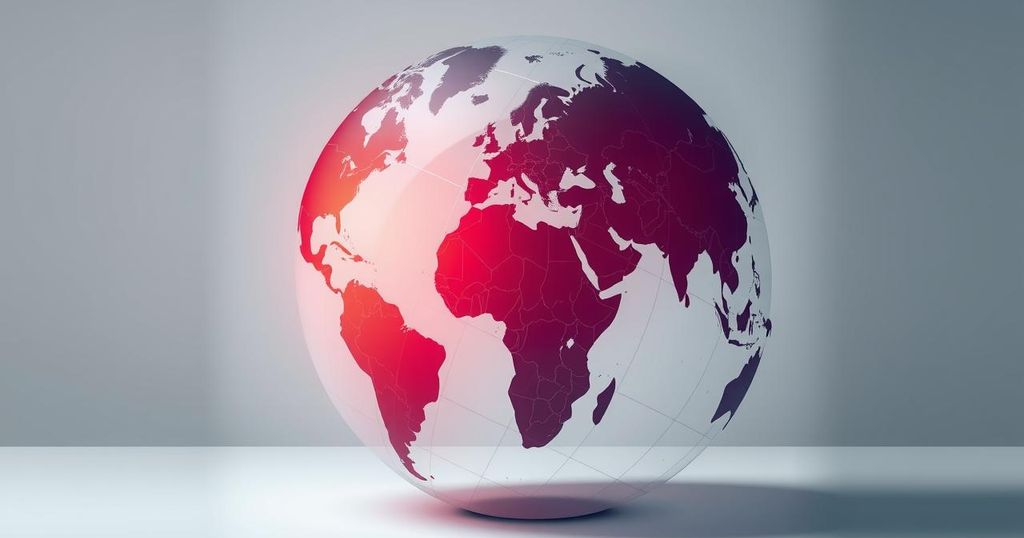Economy
Politics
AFRICA, ASIA, BANGLADESH, CANADA, CHINA, CPI, DENMARK, ECONOMY, EUROPE, EUROPE/ASIA, EXPORTS, FINLAND, FOREIGN INVESTMENT, FRANCE, GDP GROWTH, GEOPOLITICS, GERMANY, INDIA, MEXICO, NEW ZEALAND, NORTH AMERICA, OCEANIA, PAKISTAN, RUSSIA, SINGAPORE, SOMALIA, SRI LANKA, SUDAN, TRADE, TRANSPARENCY INTERNATIONAL, UKRAINE, UNITED STATES
Omar El-Sharif
2024 Corruption Perceptions Index Reveals Global Trends and Challenges
Denmark ranks as the least corrupt country in the world, followed by Finland, Singapore, and New Zealand. India has dropped from 93rd to 96th position with a score of 38. The global average corruption score is stagnant at 43, with many nations, especially Western countries, witnessing declines in their integrity rankings. Transparency International calls for urgent actions to combat corruption and safeguard climate change initiatives.
Denmark has maintained its position as the least corrupt country globally, according to Transparency International’s 2024 Corruption Perceptions Index (CPI). With a ranking of 90, Denmark is closely followed by Finland, Singapore, and New Zealand. In contrast, India has faced a decline, dropping from 93rd to 96th place, achieving a score of 38 out of 100, reflecting ongoing public sector corruption challenges.
In South Asia, several nations are also struggling with low corruption rankings. Pakistan stands at 135th, Sri Lanka at 121st, and Bangladesh at 149th, while China ranks slightly better at 76th. This trend highlights a persistent regional issue, with many countries making minimal progress in tackling corruption effectively.
The report reveals that the global average corruption score remains stagnant at 43, with over two-thirds of countries scoring below 50. Despite advancements in some nations, such as Ukraine, Transparency International warns that global corruption persists at alarming levels, undermining efforts to address pressing global issues like climate change and human rights violations.
Moreover, several Western countries have seen declines in their corruption scores. The United States fell from 69 to 65, dropping from 24th to 28th place. France and Germany similarly declined, with France losing four points and Germany dropping three points, both experiencing significant movements in their rankings.
Authoritarian regimes, notably Russia, have witnessed a worsening trend, with a drop to 22 points following its invasion of Ukraine. Conversely, Ukraine made strides in combating high-level corruption, despite a slight dip in its score. Countries such as South Sudan and Somalia rank among the most corrupt, with scores of just 8 and 9, respectively.
Transparency International emphasizes that corruption severely impedes economic development and poses critical threats to democracy and human rights. “Global corruption levels remain alarmingly high, and efforts to reduce them are faltering,” the report declares, calling for urgent measures against corruption to safeguard initiatives aimed at addressing climate change challenges. Additionally, the improper handling of climate funds is highlighted as detrimental to vital environmental efforts, underscoring the need for anti-corruption measures in climate policies.
The 2024 Corruption Perceptions Index underscores Denmark’s continued leadership in transparency, contrasting sharply with India’s decline and pervasive corruption in South Asia. While the global corruption score stagnates, many nations, especially in the West, are witnessing troubling declines. Urgent action is needed to combat corruption, particularly in safeguarding efforts aimed at addressing critical global challenges such as climate change.
Original Source: www.hindustantimes.com








Post Comment